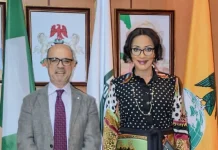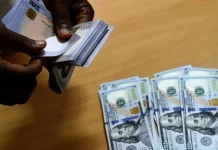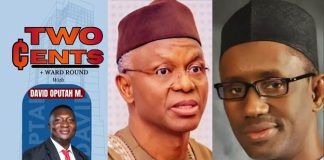The World Bank has appealed to the United States, China, the United Kingdom and other member countries of the G20 to allow, “the poorest countries to suspend all repayments of official bilateral credit,” due to the ravaging COVID-19.
A statement obtained on the multilateral institution’s website yesterday, said its President, David Malpass, made the call during the G20 finance ministers’ conference call.
Chinese credit accounts for 80 per cent of all bilateral loans to Nigeria, according to data from the Debt Management Office (DMO).
China provides loans to build railways, power plants and airports, helping to bridge a huge infrastructure gap in Nigeria.
Malpass said the debt repayment should be suspended until the World Bank and the International Monetary Fund (IMF) had assessed the reconstruction and financing needs of the poor countries.
According to him, the World Bank and the IMF were ready to work quickly with official bilateral creditors and with other international organisations as partners to finalise a process in April.
“I’m calling on the G20 Leaders to allow the poorest countries to suspend all repayments of official bilateral credit until the World Bank and the IMF have made a full assessment of their reconstruction and financing needs.
“These are difficult times for all, especially for the poorest and most vulnerable. For the World Bank Group, our first goal is to provide prompt support during the crisis, based on a country’s needs.
“It’s also vital to shorten the time to recovery and create confidence that the recovery can be strong,” he said.
The World Bank boss said the breadth and speed of its response were critical to its effectiveness.
He stated that on March 17, the bank and its subsidiary, the International Finance Corporation (IFC) boards approved a $14 billion package to respond to COVID-19.
Of that, IFC would give $8 billion in relatively fast-acting financial support for private companies, he said.
Also, the International Bank for Reconstruction and Development (IBRD) and the International Development Association (IDA) will provide $6 billion in the near term to support health care.
“We’re currently restructuring existing projects in 23 countries, many of these through the use of ‘contingent emergency response components.’
“We’re also preparing projects in 49 countries in a new fast-track facility, with decisions expected this week on as many as 16 country programmes.
“Our board will meet shortly, and I’m hopeful that this first round of countries will provide a framework to allow us to quickly scale up over the next few weeks. We’ll be inviting follow-up tranches from other MDBs into April.
“Importantly, we have identified a range of rapid procurement modalities leading to bulk purchases, and we are working together with other MDBs and the IMF to assess needs, implement the new system, and develop co-financing.
“We are in dialogue with China among other key countries to obtain help with the rapid manufacture and delivery of many of these supplies and are grateful for their positive responses so far,” he added.
According to him, beyond the severe health impact from the pandemic, there may be a major recession of the global economy.
He said the bank was working to provide a fast response, utilising all its available instruments. “Countries need to move fast to boost health spending, strengthen social safety nets, support the private sector and counter financial-market disruption.
“Countries will need to implement structural reforms to help shorten the time to recovery and create confidence that the recovery can be strong,” he stated.
Source: THISDAY













